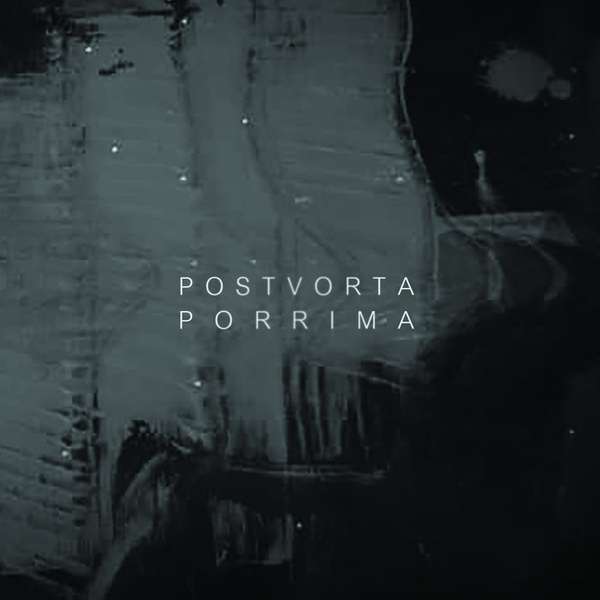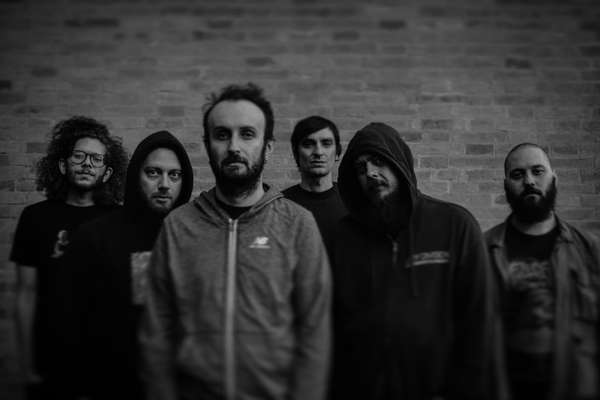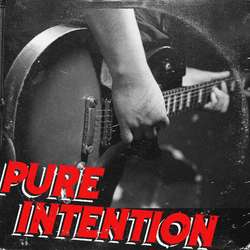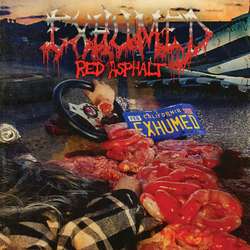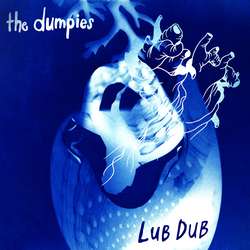With this album the Carmentae have found each other. If you haven’t studied Roman mythology this might mean nothing to you. If you have you will know Postvorta is the goddess of the past and her companion Porrima is the goddess of the future. So now you know. Is this knowledge of any use for you? No, but as a Dutch comedian once said: “It’s a fact. It’s useless, but it’s a fact”. This particularly Postvorta is not a goddess at all, but a six-piece from Italy. They play cinematic doom. Although I do see a certain cinematic approach in their sound, I would like to add the tag post-metal. Last year Glare Of The Sun released the post-metal album that stuck with me the most (it is still on heavy rotation actually), is Postvorta the post-metal band of 2020?
Porrima closes a trilogy of albums dealing with birth, life and death. This final album of the trilogy deals with the five phases of mourning, denial, anger, bargaining, depression and acceptance. Heavy stuff that is packed in a heavy album. Each of these five tracks represent a different phase. In life there are no strict boundaries from one phase to the next. The strange thing about this album is that here the tracks also seem to merge in one grand track. A soundtrack to a film dealing with the subject, so to say. Is this why Postvorta call their music cinematic doom? It would make sense. I do feel that, although the album is split into five different parts, it is meant to be heard in one sitting. That is a heavy job though, as this album is almost 90 minutes long. Yes, these tracks are loooooooooong!
Porrima starts a bit strange, with three minutes of (almost) silence. The sound of water and subtle guitar (in the background) are all that are there. When the band finally comes in they don’t hold back. Although I put the post-metal tag on them this band does not necessarily follow the well known built-up into a crescendo this genre is known for. Postvorta creates the tension to keep you focussed on their music in different ways. The music ranges from almost silence to almost black metal and everything doom and sludgy in between. This does not mean their music is full on the whole album, it does play with soft and loud dynamics, but less in your face then middle of the road bands do. The extra sounds provided by amongst others a trombone on opening track "Epithelium Copia" are something that break the album open when it is needed. The prime example is not the trombone though, but the additional vocals on “Decidua Trauma Catharsi” by Francesca Grol. Her cleans present a nice and much needed break from the main vocals (which are a constant sludgy scream). Final track “Aldehyde Framework” offers something slightly brighter than what we heard previously. At what appears to be the end of the track we hear the sound of water again. Don’t be fooled. There are a few minutes remaining. In these last minutes Postvorta goes for a Mono-sound. This is the sound of acceptance. It is just beautiful. The perfect ending for Porrima. The end of a journey. It is up to you to decide if it is the end of a journey of one or three albums.
The production is as heavy as the subject and the music, but gives the music enough space to breathe. Something that is needed. If this production was completely brick-walled, 90 minutes would have been way too long. Although the loud parts are really loud, every instrument can be heard. This is beautifully opposed by the quiet parts, which in turn can be really silent. In fact, if you play this on your in-ears, you might think something went wrong and the album did not start (I’m speaking from experience here). If you play it over your stereo, you will hear how gentle the album starts.
So, is this the post-metal album of 2020? I am not sure yet. When I started my journey with Postvorta I did not think so. I felt the band could have edited a bit more. Some songs could have lost a few minutes without hurting the end result. After listening to this album ten times or more I can only conclude that this album grows on you. It is very well possible I will look back on this review in a year or so and conclude the score I gave it does not do it justice. We’ll see.
I want to conclude this review with one question for you, my dear reader: if you really want to give this album a shot, give it 90 minutes. You should really experience this album as a whole. Because it is.
